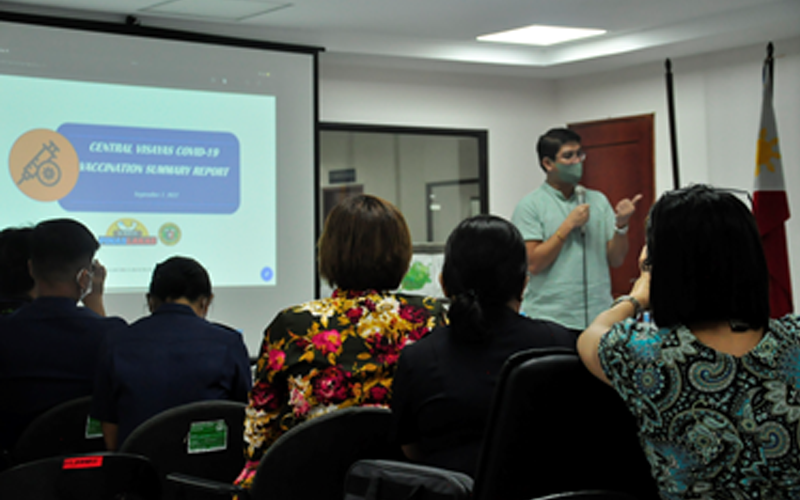
INFORMATIONAL and structural barriers preventing many from not receiving the Coronavirus disease (COVID) vaccines, and a key health professional believes proper information targeted to those hesitant to get the protection could ease up on the seemingly unattainable target.
For Bohol, a target of getting to at least 80% of its senior citizens and 70% of the general population has been pegged since last year, and has not been achieved.
Speaking during the recent LakasPinas Forum, with Information Officers and the media at the Cambangay hall of the Bohol Provincial Capitol, Department of Health Region 7 (DOH-7) spokesperson Dr. van Phillip Baton pointed out that the top reasons for vaccine hesitancy include a concern for the side effects, lack of information if the vaccine works and the usual “wait and see” attitude.
Those reasons however, are stalling the economic recovery of the country as the full revving of the economy would always be dependent on the degree of freedom of medical safety in work and travel.
Dr. Baton supported his claim with the online 2022 COVID-19 Vaccination Survey done between May 12-19, showed that 86 of the 2599 respondents were unvaccinated and that 60 of the 86 were concerned of the side effects.
“Side effects are normal, and the inconvenience of having side effects over the certainty of getting moderate to serious case of COVID, which has hit big on the unprotected, should be enough argument,” hinted the medical professional.
Of the same number of unvaccinated individuals, about 26 said there is no support for the treatment of side effects after vaccination.
“In most cases when there are side effects, these manifest as simple colds, cough or fever and are manageable at home, one does not even need to go to a hospital for proper medical care, unless things turn out serious,” a Barangay Health Emergency Response Team member commented.
And there is in fact, appropriate medical support in case of the rare serious side effects, she asserted.
And there are about 20 of the 86 unvaccinated survey respondents who believe the vaccine protects them from severe COVID.
As to those who have not been given the first booster shot, which went at 492, the 232 or 47% said they are not concerned about side effects, 147 or 30% said they have not seen any available schedule to get vaccinated and 101 or 25% said they are waiting for their preferred brand of vaccines.
For those who received the primary doses but have refused to get the booster, which number 238, 176 of them or 74% are not concerned of the side effects, 77 or 32% said there is no support for treatment of side effects after vaccination and 36 or 15% who refused the booster because it is not a requirement for school or work anyway.
By these data alone, DOH said there is still a need for information officers to widely disseminate efficacy and safety cards and the information therein, socially mobilize to stress on safety and efficacy of vaccines.
The government health department also recommends considering targeted communications to those unemployed, under college graduates and lower middle income families as these register low on primary and booster doses.
DOH also recommends the production of IEC material that are more likely to reach populations in lower socio-economic status, materials that use less text and more visuals and the use of other creative and conventional information dissemination platforms. (rahc/PIA-7/Bohol)

